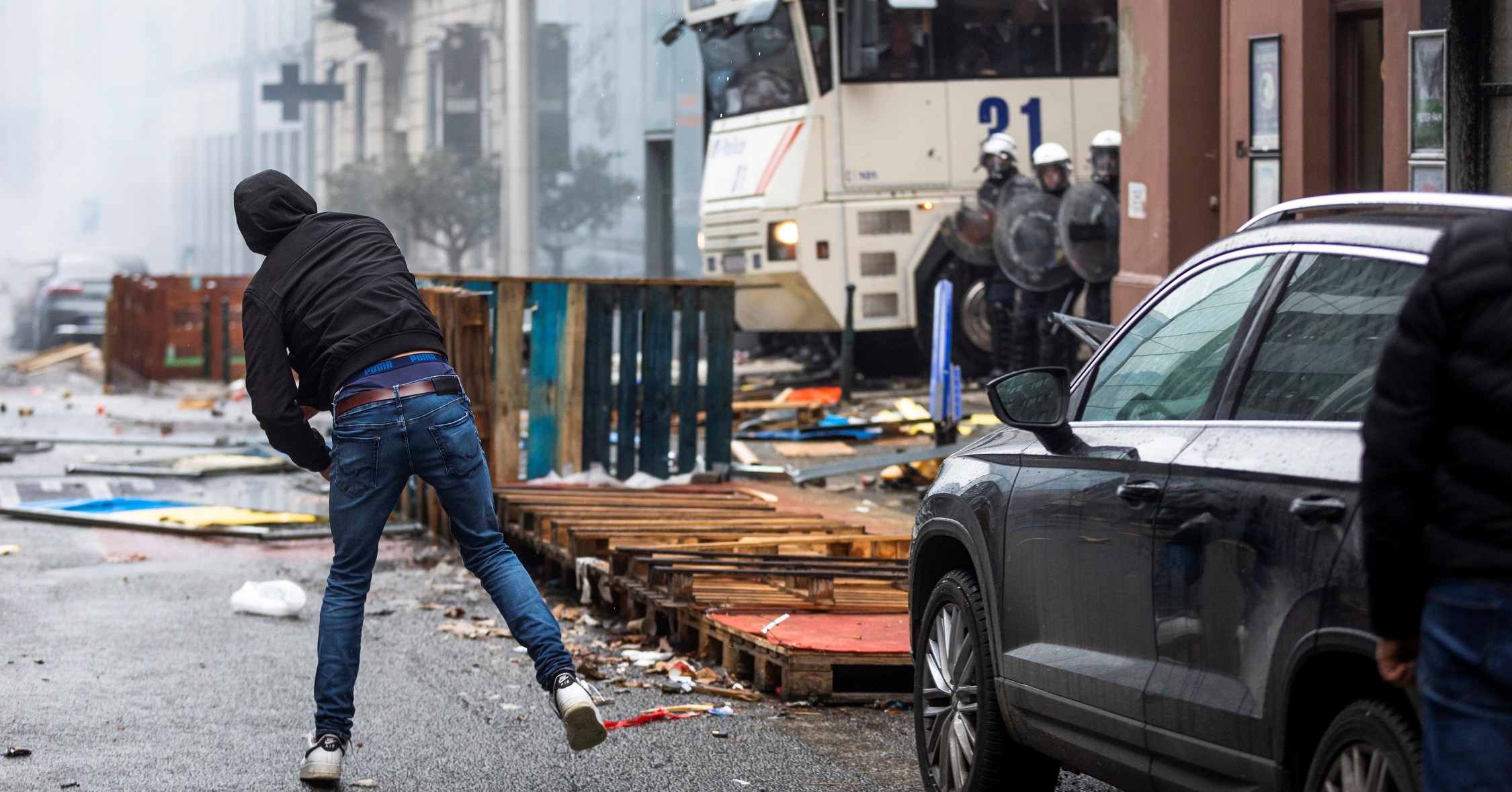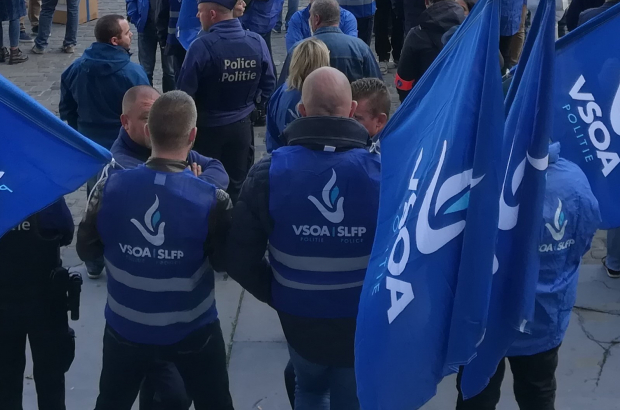- Daily & Weekly newsletters
- Buy & download The Bulletin
- Comment on our articles
Police again block traffic in Brussels in protest at sluggish labour negotiations
Federal police officers once again took to the streets of Brussels this morning to purposely snarl traffic in an ongoing series of protests. The police are angry at the slow progress in hiring more officers and that there have been no pay rises in some 20 years. Ongoing talks between police unions and the government are not yielding the desired results, say the unions.
Early this morning, about 500 police officers marched from Central Station to interior minister Annelies Vanderlinden’s office. Along the way, they blocked some of the tunnels as well as the ring road at Rue de la Loi, creating tailbacks between Koekelberg and the Schuman round-a-bout. By 8.45, the streets were clear, and traffic was flowing.
It was the latest in a series of protest actions over the last several weeks in which federal police have hindered citizens’ movements in an attempt to force the government to meet their demands. Deliberatly slow passport controls at Brussels Airport, for instance, caused more than 200 people to miss their flights during the autumn school holiday. Some 25 flights left late as airlines tried to wait for passengers stuck in long queues.
Unions met with interior minister Vanderlinden this morning. Officers say, however, that these kind of disruptive protests will continue until an agreement is reached. The original protest notice lasted until 1 December, but just this morning the unions extended it to 31 January.
Underpaid, overworked
“We have to shake up the politicians and insist that they made good on their promises,” Vincent Houssin of VSOA told VRT. “We must give them a very strong signal. When other sectors protest, there is also disruption in Brussels and at the airport.”
He also pointed out that the police must continue working when they protest as they are not allowed to strike. “When rail workers go on strike, they don’t come to work, and the whole system shuts down. That also leads to huge delays. We can’t do that, so we have to use the options open to us.”
The police have not seen an increase in salaries in 20 years, according to Houssin, despite promises made by the federal government to do so. The government is also working to cut the police budget by reforming officers’ retirement plans.
“Concretely that means that officers who were hired in the 1980s and ’90s will see their early retirement option jump up by as much as 10 years,” Carlo Medo of the NSPV union told VRT. “That is just insulting. Being a police officer is a heavy and stressful job.”
 Three police officers were injured in yesterday’s protest ©Hatim Kaghat/BELGA
Three police officers were injured in yesterday’s protest ©Hatim Kaghat/BELGA
Prime minister Alexander De Croo, who has rejected police unions’ request to involve himself in negotiations, appeared to pour oil on the fire yesterday, speaking to VTM news. “These kind of actions are frustrating for a huge number of people in the country,” he said. “They are frustrating to people who want to work, and you shouldn’t make their lives more difficult than they already are.”
His statement came as police were struggling to control a 30,000-strong protest against coronavirus measures and required vaccinations in the hospital and care sectors. Several officers were injured as the protest march turned ugly, and people started rioting.
“To say that our actions are going too far while Brussels was on fire, and we were being injured is unbelievable,” said Houssin. “A prime minister should stand behind the police and respect the actions.”
Photo top ©Antony Gevaert/BELGA



















